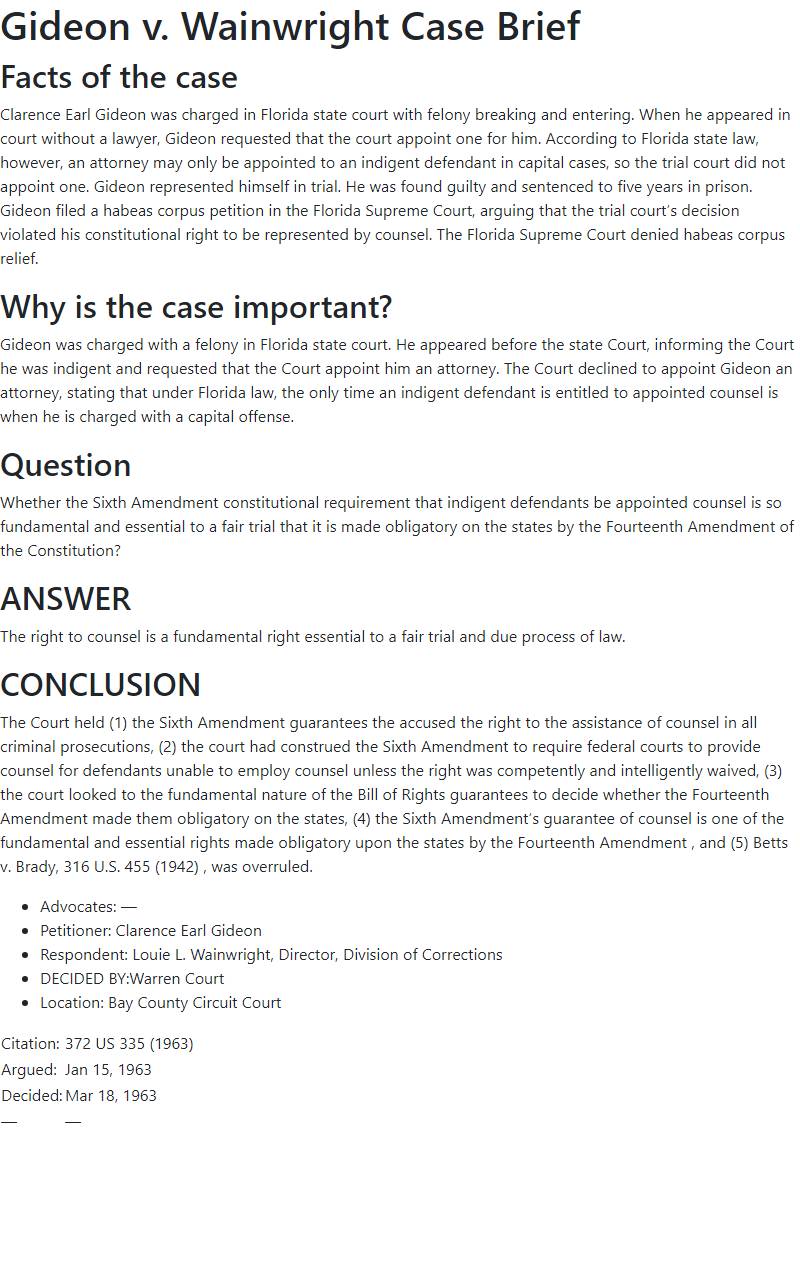Facts of the case
Clarence Earl Gideon was charged in Florida state court with felony breaking and entering. When he appeared in court without a lawyer, Gideon requested that the court appoint one for him. According to Florida state law, however, an attorney may only be appointed to an indigent defendant in capital cases, so the trial court did not appoint one. Gideon represented himself in trial. He was found guilty and sentenced to five years in prison. Gideon filed a habeas corpus petition in the Florida Supreme Court, arguing that the trial court’s decision violated his constitutional right to be represented by counsel. The Florida Supreme Court denied habeas corpus relief.
Why is the case important?
Gideon was charged with a felony in Florida state court. He appeared before the state Court, informing the Court he was indigent and requested that the Court appoint him an attorney. The Court declined to appoint Gideon an attorney, stating that under Florida law, the only time an indigent defendant is entitled to appointed counsel is when he is charged with a capital offense.
Question
Whether the Sixth Amendment constitutional requirement that indigent defendants be appointed counsel is so fundamental and essential to a fair trial that it is made obligatory on the states by the Fourteenth Amendment of the Constitution?
ANSWER
The right to counsel is a fundamental right essential to a fair trial and due process of law.
CONCLUSION
The Court held (1) the Sixth Amendment guarantees the accused the right to the assistance of counsel in all criminal prosecutions, (2) the court had construed the Sixth Amendment to require federal courts to provide counsel for defendants unable to employ counsel unless the right was competently and intelligently waived, (3) the court looked to the fundamental nature of the Bill of Rights guarantees to decide whether the Fourteenth Amendment made them obligatory on the states, (4) the Sixth Amendment’s guarantee of counsel is one of the fundamental and essential rights made obligatory upon the states by the Fourteenth Amendment , and (5) Betts v. Brady, 316 U.S. 455 (1942) , was overruled.
- Advocates: –
- Petitioner: Clarence Earl Gideon
- Respondent: Louie L. Wainwright, Director, Division of Corrections
- DECIDED BY:Warren Court
- Location: Bay County Circuit Court
| Citation: | 372 US 335 (1963) |
| Argued: | Jan 15, 1963 |
| Decided: | Mar 18, 1963 |
 |
|
